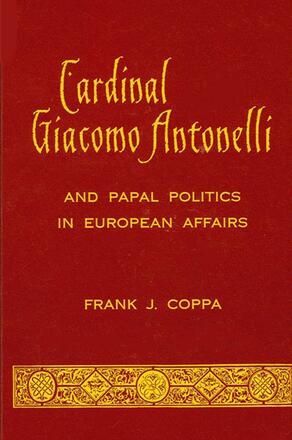
Cardinal Giacomo Antonelli and Papal Politics in European Affairs
Alternative formats available from:
Description
Coppa provides the first full-length study of Giacomo Antonelli, friend and advisor to Pope Pius IX (Pio Nono) and his Secretary of State and chief minister from 1849 to 1876. Based on the documents of the secret Vatican Archives, and neglected family papers in the State Archive in Rome, the book gives an important reevaluation of this key diplomatic figure, separating the man from the myth and delving into his character and policies.
The book examines both the personality and policies of the Cardinal, who was seen to be the Pope's Richelieu and Mazarin combined. Confronting the polemical literature which has charged him with sexual misconduct and venality, the study examines his early formation and career, the inspiration for his European policies, his relationship to Pio Nono, and the part he played in the Counter-Risorgimento and the Papal reaction. By improving our understanding of Papal, Italian, and European developments during these crucial decades, this study provides new insights into Rome's fortress mentality and its rejection of the main currents that were transforming western life— currents that influenced not only the Catholic Church but European society as a whole.
Frank J. Coppa is Professor of History at St. Johns University.
Reviews
"Style and subject matter are artfully and skillfully combined to provide interesting reading. In discussing Cardinal Antonelli's career, Coppa has also written an important chapter in the history of the Italian Risorgimento. Since the Risorgimento concerned, at one time or another, all the major European powers, this book has much to say on the delicate structure of and balance in political and diplomatic relations during the century. Coppa makes a strong case for a reevaluation of Antonelli's role in the papacy's struggle to preserve both its territorial integrity in Italy and its position as a power in European affairs. He succeeded in persuading this reader that Cardinal Antonelli has indeed been much maligned and deserves a new image. " — Emiliana P. Noether, University of Connecticut
"Coppa demonstrates, I think convincingly, that Papal policy was more defensible than is usually believed, and that insofar as it was harmful, it sprang primarily from the will of the Pope, often against Antonelli's objections. The result is to improve our understanding of this crucial period in Papal history, when Rome embarked upon the course that it was to follow down to the Second Vatican Council. " — Alan J. Reinerman, Boston College